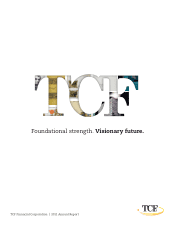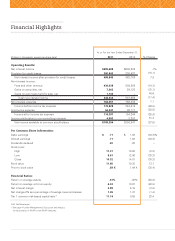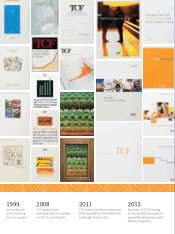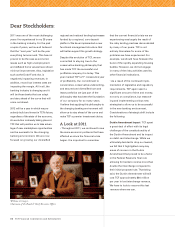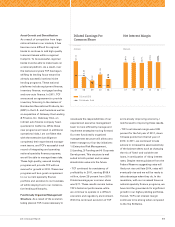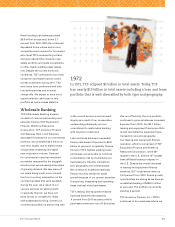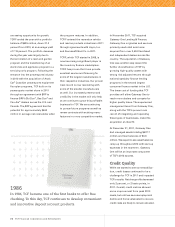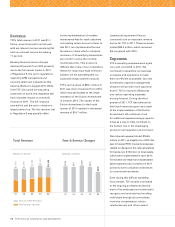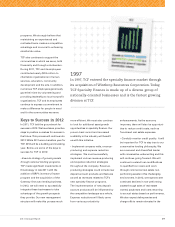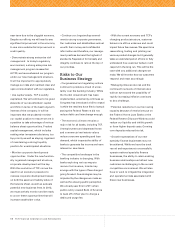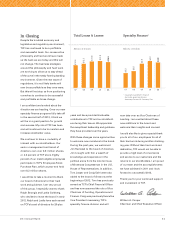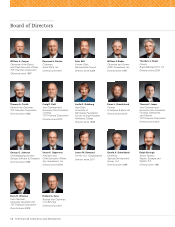TCF Bank 2011 Annual Report Download - page 6
Download and view the complete annual report
Please find page 6 of the 2011 TCF Bank annual report below. You can navigate through the pages in the report by either clicking on the pages listed below, or by using the keyword search tool below to find specific information within the annual report.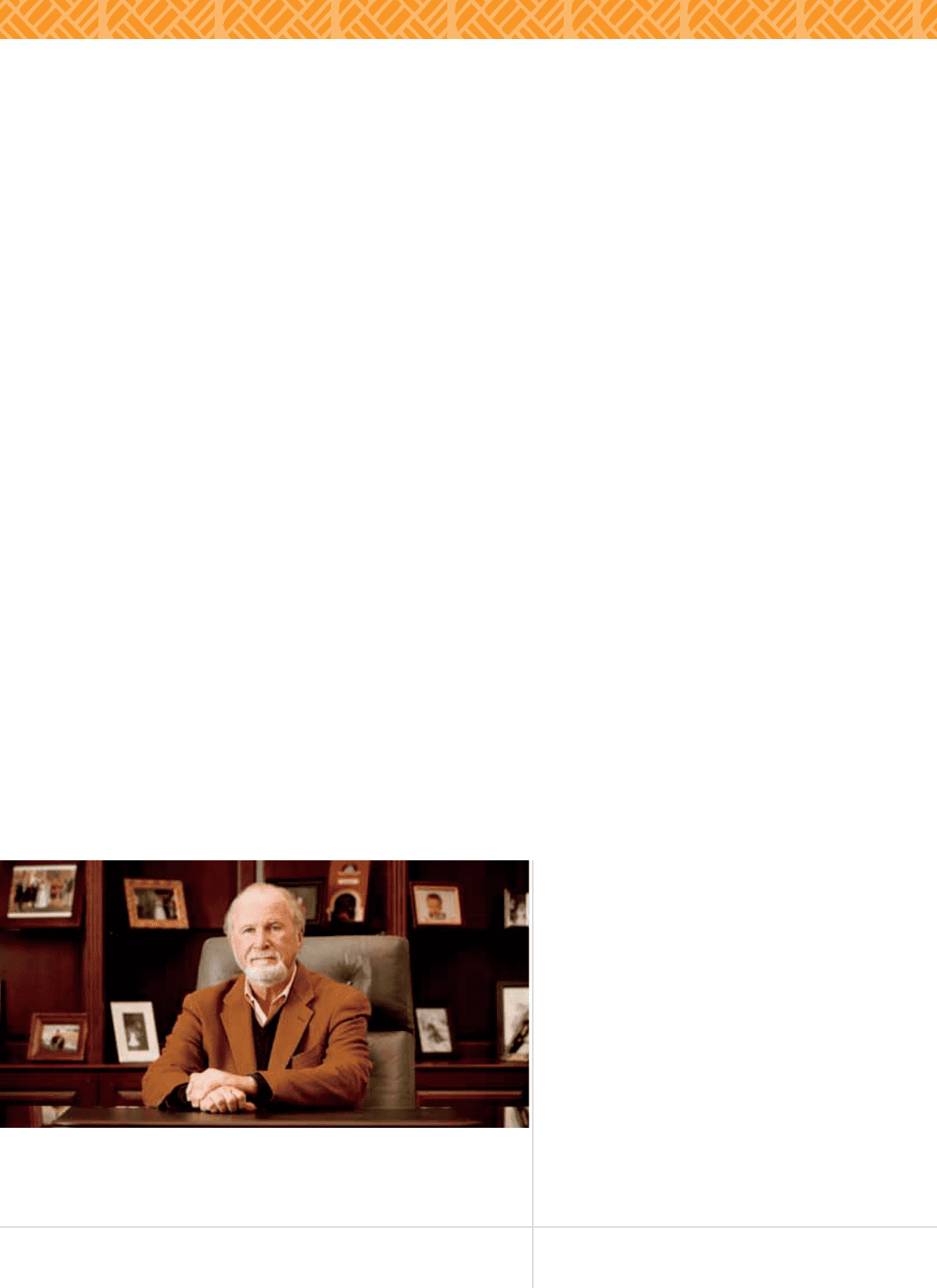
William A. Cooper,
Chairman of the Board & Chief Executive Officer
Dear Stockholders:
2011 was one of the most challenging
years I’ve experienced in my 39 years
in the banking industry. For the past
couple of years, we have all believed
that the “next year” will be the year
everything turns around. This has not
proven to be the case as economic
issues such as high unemployment
and deflated home values have shown
minimal improvement. Also, legislation
such as the Dodd-Frank Act, is
negatively impacting revenues. In
addition, record low interest rates are
impacting the margin. All in all, the
banking industry is changing and it
will be those banks that can adapt
and stay ahead of the curve that will
come out ahead.
2012 will be a year in which we pro-
actively build and invest in TCF’s future,
regardless of the state of the economy.
An evolution is already taking place at
TCF that will position us to take advan-
tage of new marketplace opportunities
and be successful in the changing
banking environment. We are now
focused on growing our diversified
regional and national lending businesses
funded by a regional, core deposit
platform. We have implemented a new
functional management structure that
will better support this growth strategy.
Despite this evolution of TCF, we are
committed to staying true to the
conservative banking philosophy that
has made TCF the successful and
profitable company it is today. This
year marked TCF’s 21st consecutive year
of profitability. Our commitment to
convenience, conservative underwriting,
and secured and diversified loan and
lease portfolios are just part of the
philosophy that has been the foundation
of our company for so many years.
I believe that applying this philosophy to
the changing banking environment will
allow us to stay ahead of the curve and
make TCF a premier investment choice.
A Look at 2011
• Throughout 2011, we continued to see
the same economic problems that have
affected us since the financial crisis
began. It is important to remember
that the current financial crisis we are
experiencing was largely the result of
the risky lending practices demonstrated
by many of our peers. TCF is not
entirely blameless for some of the
problems we have experienced. For
example, we should have foreseen the
burst of the rapidly expanding housing
bubble. However, we did not engage
in many of the risky activities used by
other financial institutions.
• As a result of the continued imple-
mentation of legislative and regulatory
requirements, TCF again spent a
significant amount of time and money,
not only on compliance, but research-
ing and implementing various new
strategies to allow us to be successful
in the new banking environment.
Considerations of strategic shift include
the following:
Durbin Amendment Impact TCF spent
a great deal of effort with its legal
challenge of the constitutionality of
the Durbin Amendment and its impact
on debit card interchange. While we
ultimately decided to drop our lawsuit,
we felt that it highlighted many key
areas of concern in the Durbin
Amendment that proved to be a factor
in the Federal Reserve’s final rule
allowing for banks to receive more than
double the interchange compared to
their initial proposed rule. That being
said, the Durbin Amendment will still
cost TCF approximately $60 million
per year in lost interchange revenue.
We have to look to recover this lost
revenue where we can.
02 TCF Financial Corporation and Subsidiaries

